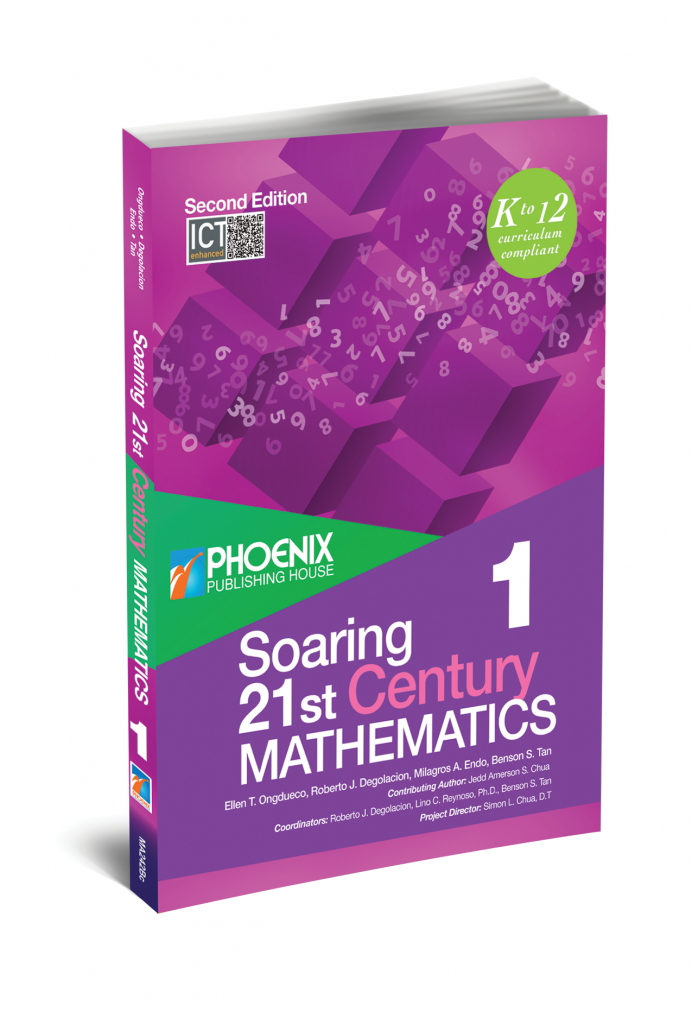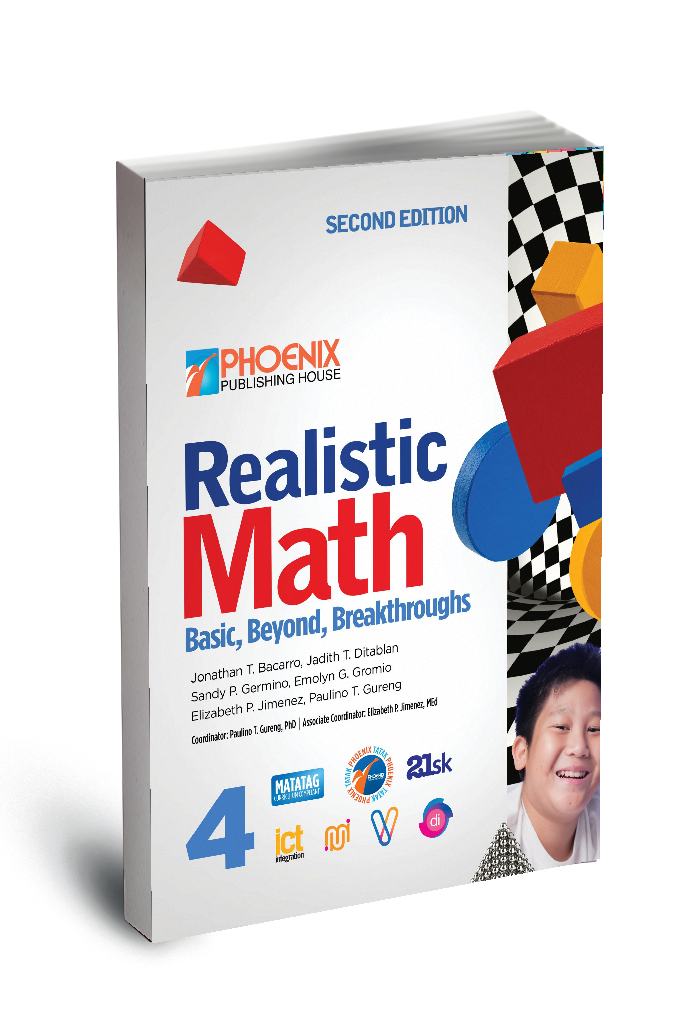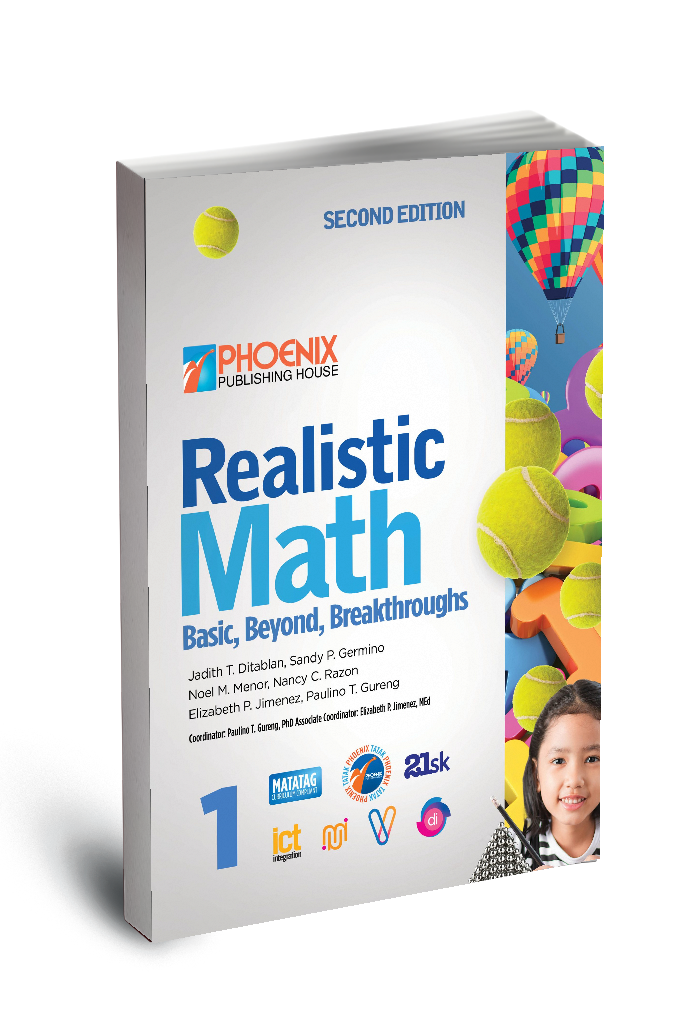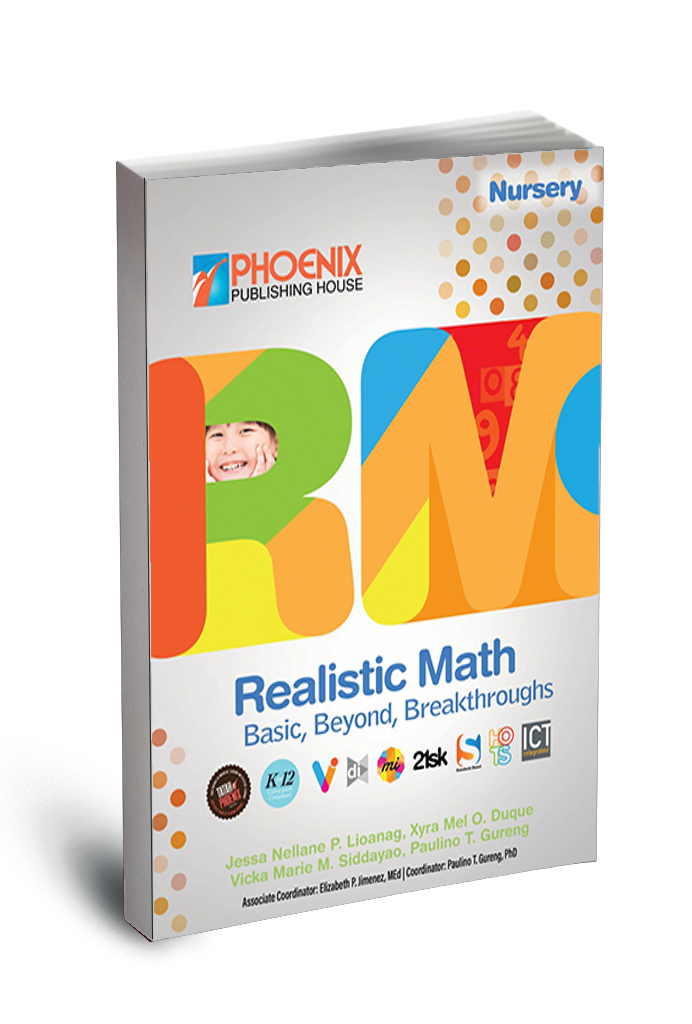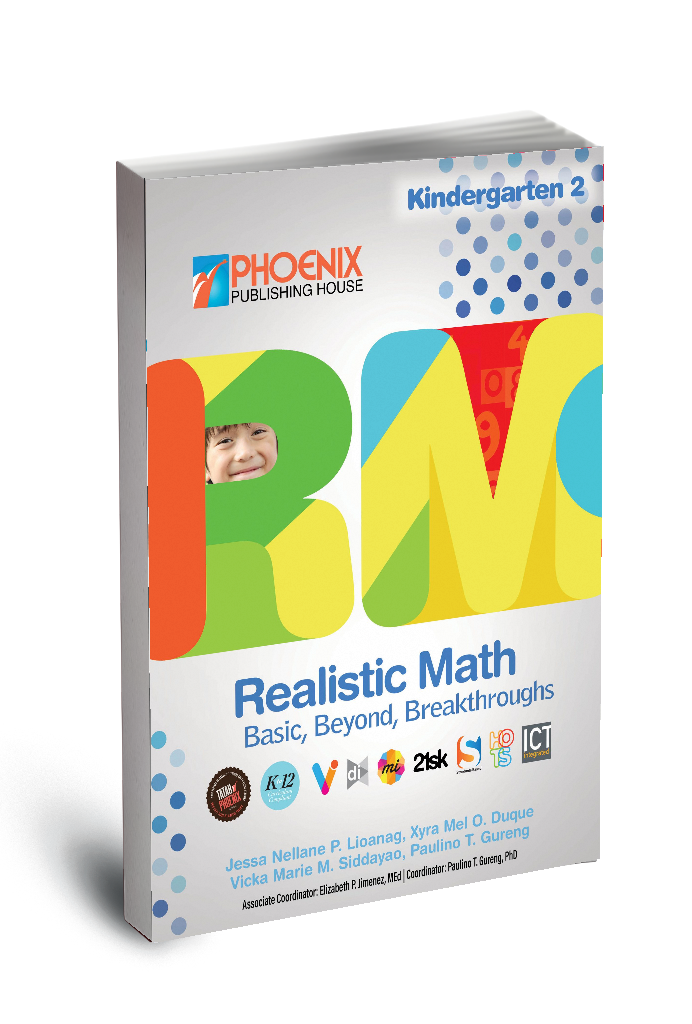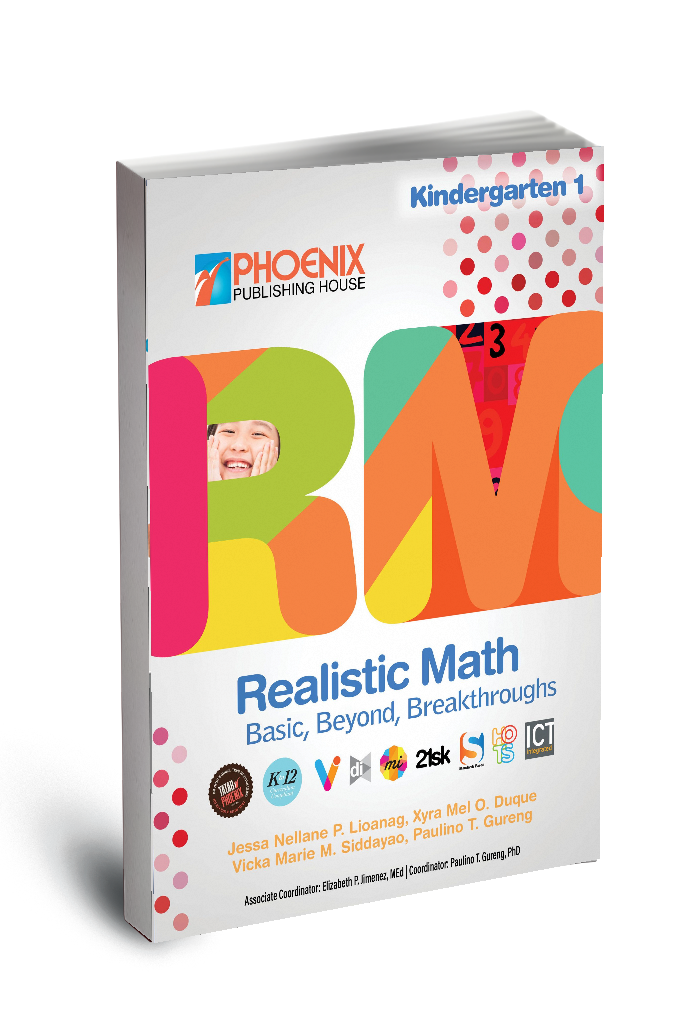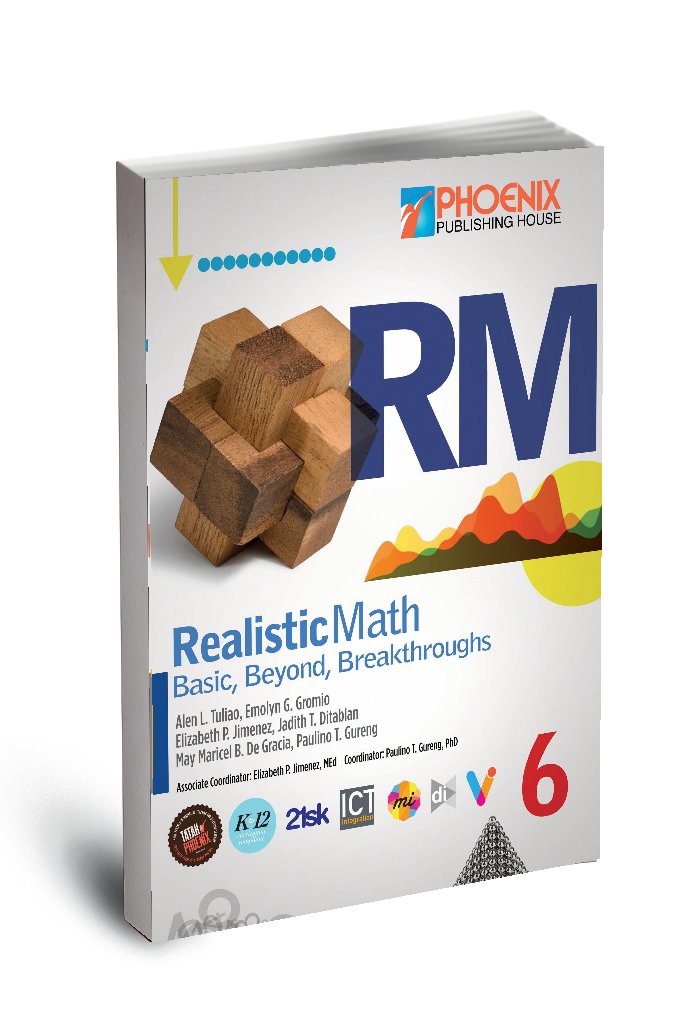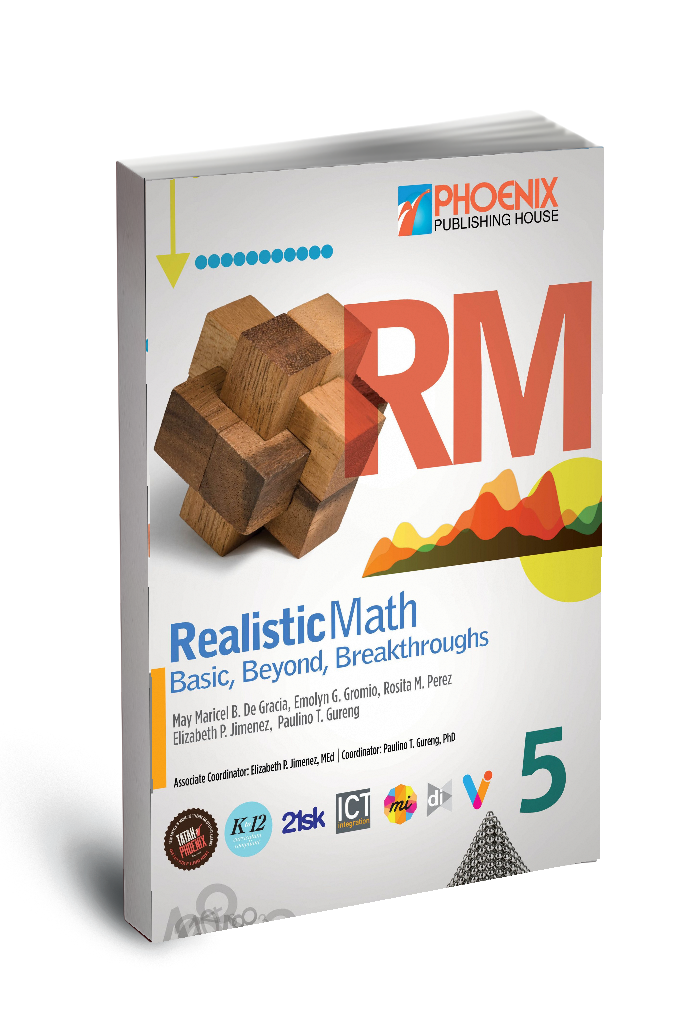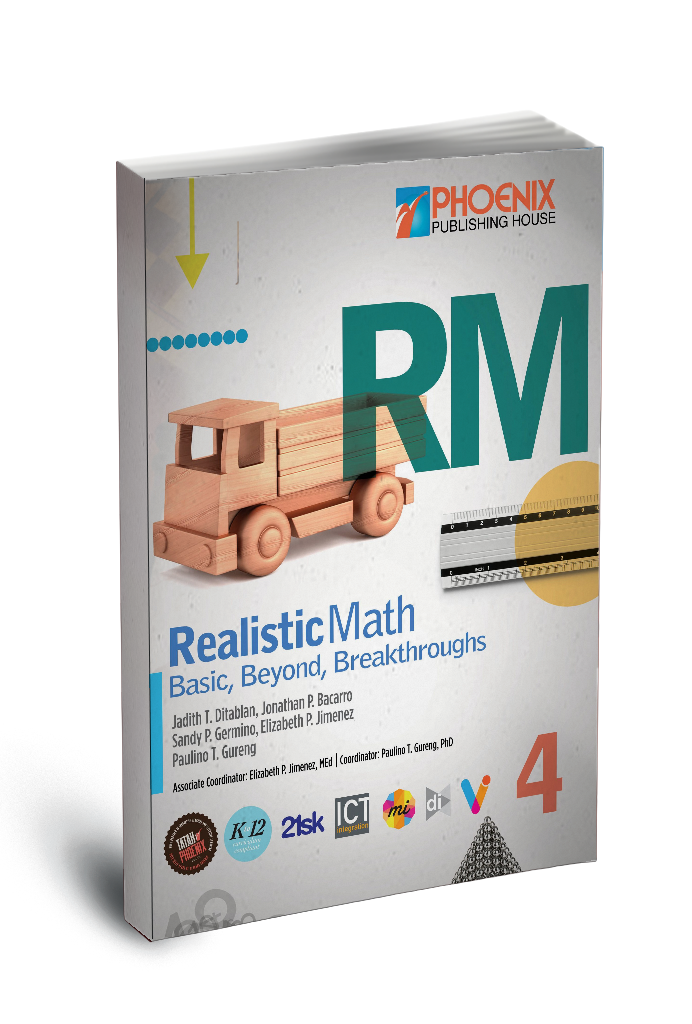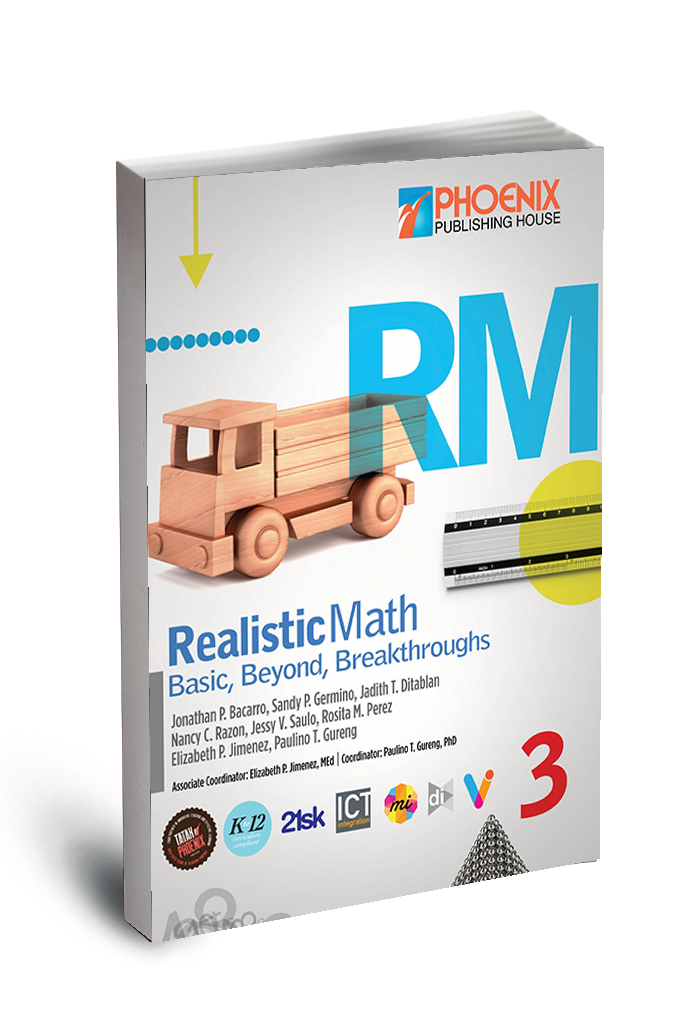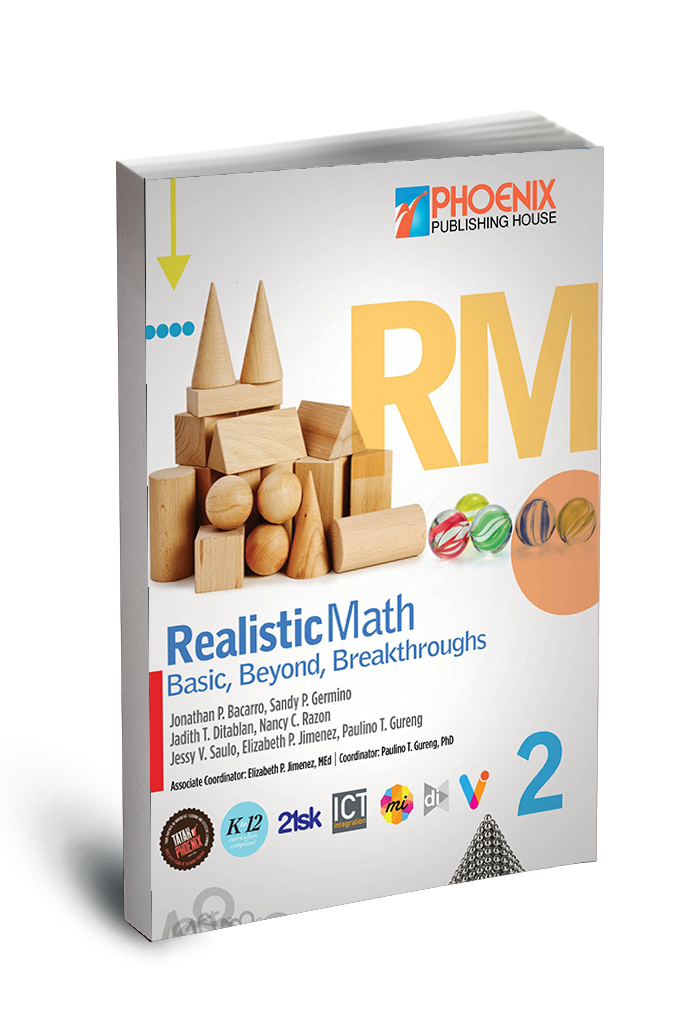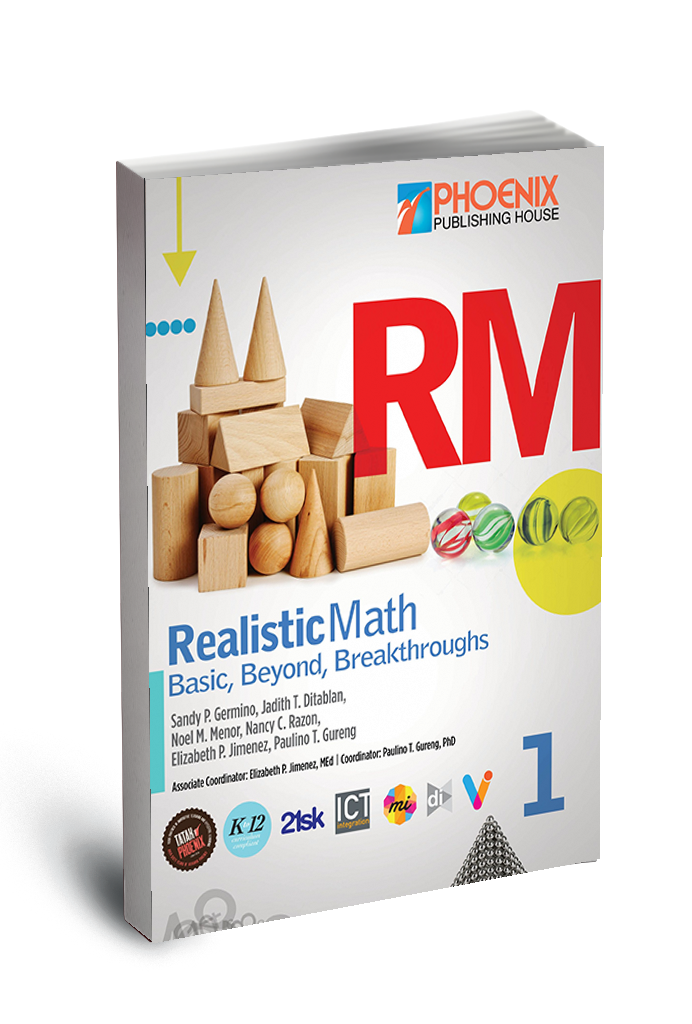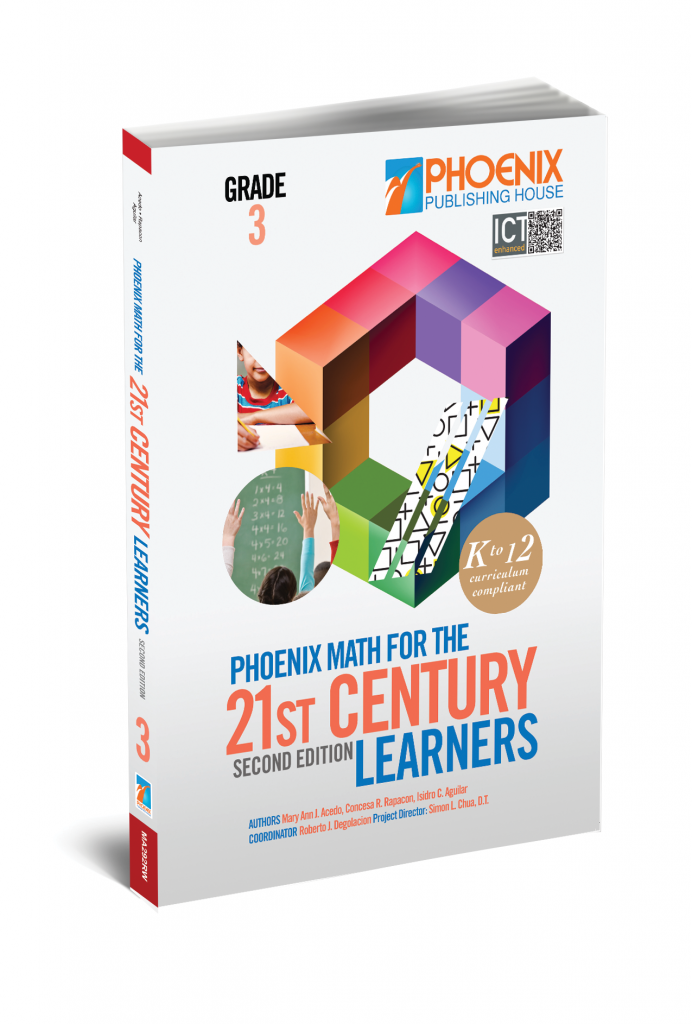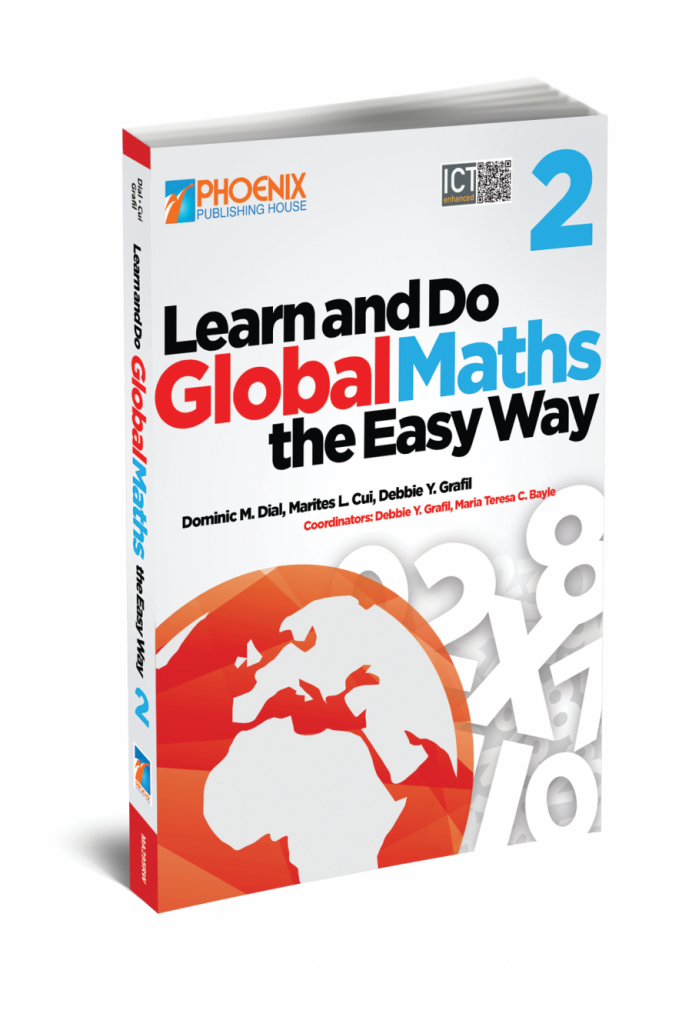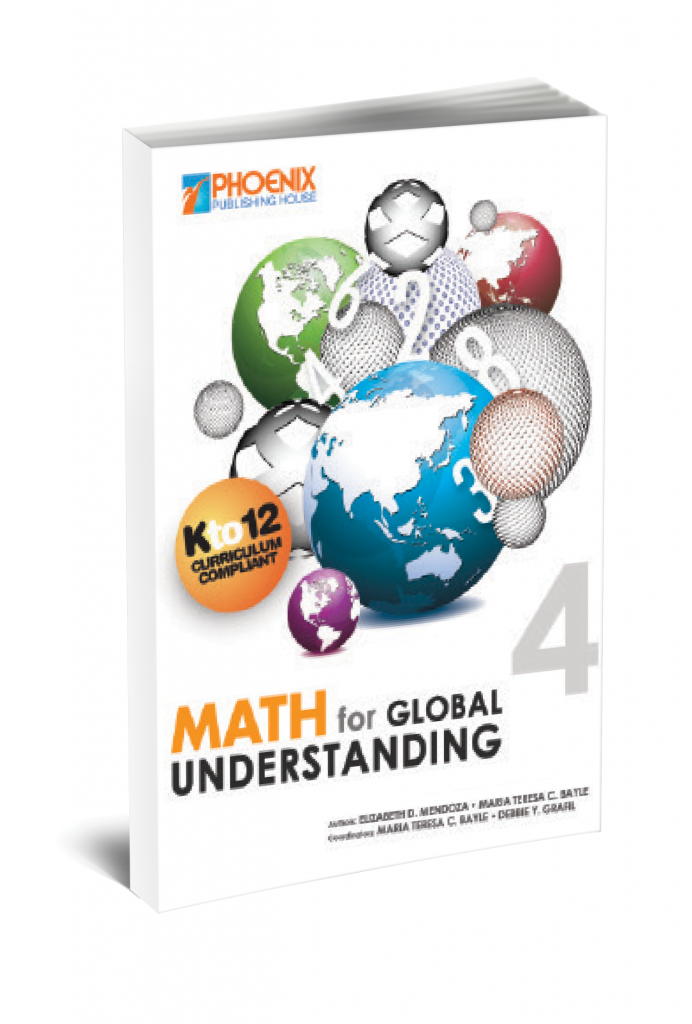
Math for Global Understanding
Math for Global Understanding promises to be the missing link between knowing and understanding. It allows students to figure out the big ideas and essential understandings that surround particular concepts and ideas. It develops in students appreciation of the power of analysis and reasoning through carefully-crafted assessments that are real-life and standards-based
Author/s
Grade 1: Maria Teresa Bayle
Grade 2: Dominic Dial; Author Coordinator: Debbie Grafil
Grade 3: Elizabeth Mendoza and Maria Teresa Bayle
Grade 4 and 5: Dominic Dial, Marites Cui, and Debbie Grafil
Grade 6: Christine Jayne Blanco and Maria Teresa Bayle;
Coordinator: Maria Teresa Bayle and Debbie Grafil
Level/s
Grades 1, 2, 3, 4, 5, and 6
Worktext Copyright
The New Grade 1: 2013
The New Grade 2: 2013
The New Grade 3: 2014
The New Grade 4: 2015
The New Grade 5: 2016
The New Grade 6: 2016
The series provides functional, relevant, and practical examples that pupils can use in their daily-life interactions with the community, the country, and the world. It allows pupils to figure out the big ideas and essential understandings revolving around the lessons and challenges them to constantly check on their prior learning through the Essential Questions found at the beginning of each chapter. The series contains assessments that are carefully classified into four categories — Knowledge and Technical Skills, Process, Understanding, and Product — that mirror the standards-based assessment mandated by the DepEd Order No. 73.
Features:
- Think Global Math – shows the functional and practical use of Math in the real world
- Make Sense – shows how Math gives meaning and relevance to our daily routines and activities
- Learn More – provides additional information, knowledge, and skills on a higher level to expose the students to more challenging tasks
- My Enduring Understanding – allows students to check the accuracy of their understanding of the lessons discussed
- My Evidence of Learning: Raising the B-A-R – provides various forms of formative assessments, covering the different levels of learning, as mandated by the DepEd Order No. 73.
Subsections (present assessments in varying degrees of difficulty): - Building Proficiency – assessments on knowledge
- Approaching Proficiency – assessments on Process and Skills
- Reaching Proficiency – assessments on Understanding, Meaning-Making, and
Transfer
Other Books
Building Learner Resilience with MATATAG Curriculum – Compliant Solutions


